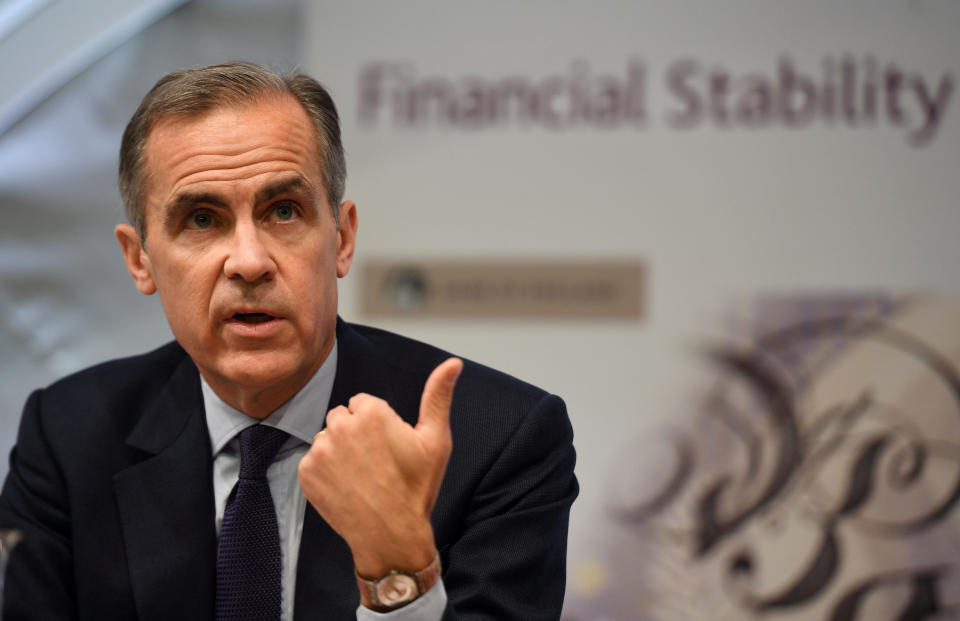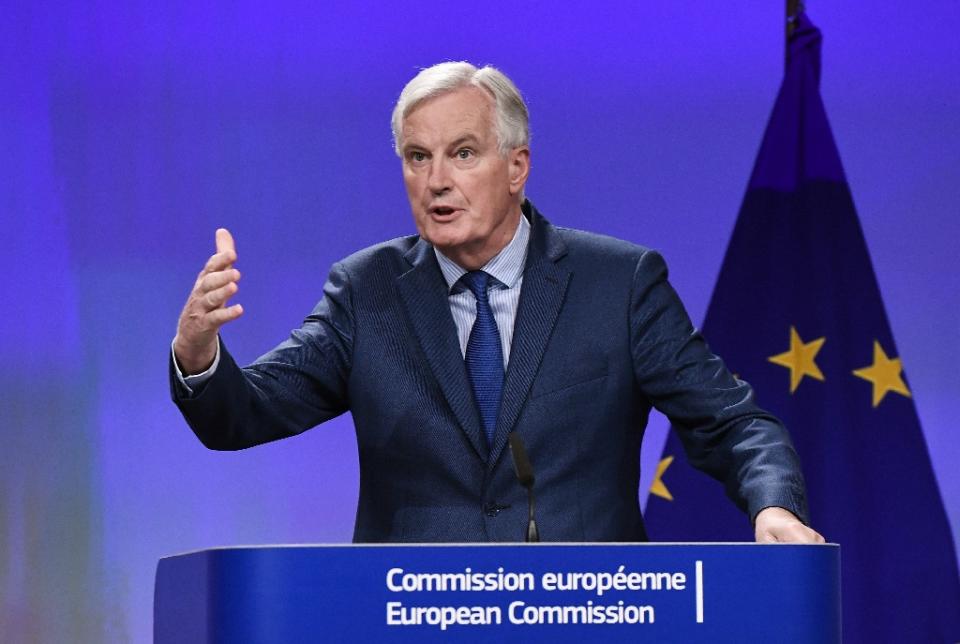What will happen to UK banks after Brexit?

British banks will be able to survive a no deal Brexit, a series of “stress tests” have shown.
The Bank of England’s nightmare scenario of soaring unemployment, plunging house prices and rising interest rates was designed to put the UK’s banks under severe pressure.
Only Barclays and RBS did not pass the snapshot test of their financial position at the end of 2016 – but they have both been “passed” given the progress made since then.
In a worst case scenario, the Bank imagined a 33% fall in house prices, a rise in interest rates from 0.5% to 4% within two years, and the unemployment rising to 9.5% from its current rate of 4.3%.
Lloyds, HSBC, Santander, Nationwide and Standard Chartered were the other lenders who took part.
MORE: UK aerospace industry already being frozen out of big deals amid Brexit uncertainty
But, how will Britain’s banks look after Brexit?
The bottom line, most within the industry believe, is that there will be fewer employees here.
It’s been suggested as many as 9,000 banking jobs will be lost to the UK after Brexit, either through redundancies or, more likely, through relocation as banks based here up sticks to move the EU to maintain current working practices.
“Global” banks such as Standard Chartered and JPMorgan, as well as Goldman Sachs, UBS, and Citigroup, have all indicated they plan to bulk up their European operations to secure access to the European Union‘s single market when Britain leaves the bloc in March 2019.

Deutsche Bank said in April up to 4,000 UK jobs could go to Frankfurt and other locations in the EU – the largest potential move of any bank.
HSBC chief executive Stuart Gulliver has said the bank’s previous estimate that about 1,000 staff would move to Paris was based on a ‘hard Brexit’ scenario.
Post-Brexit, Barclays will base its European activities in Dublin, generating tax revenues for the Irish government rather than the UK.
While UK consumers’ day-to-day interactions with their local bank will most likely be unaffected by Brexit, it’s behind the scenes that the consequences of leaving the EU will be most keenly felt.
British banks will lose “passporting rights” to do business in the European Union after Brexit, Michel Barnier, the EU’s chief Brexit negotiator, said earlier this week.
“The legal consequence of Brexit is that the UK financial service providers lose their EU passport. This passport allows them to offer their services to a market of 500 million consumers and 22 million businesses,” he warned.
MORE: What is euro clearing and why does it matter to the UK and Brexit?
Some 5,400 British firms rely on passporting rights to bring in £9bn in revenue every year to Britain.
The British Bankers’ Association has warned the loss of passporting would be “disruptive, costly and time-consuming”.
“Passporting” – the Markets in Financial Instruments Directive (MiFID) – is a major piece of European legislation and one which is “absolutely fundamental to the ability of banks and investment firms to conduct investment business across the EU”, says international law firm Ashurst.
MiFID regulates the conduct of investment services in Member States, such as the trading of securities and derivatives, the execution of client orders, underwriting, and portfolio management.
Crucially, it also gives banks in a Member State the ability to carry on business and sell services throughout Europe without obtaining a licence or similar in each individual country.
Once the UK leaves, it becomes a “third country”, putting it on a par with the US or Hong Kong and requiring it to have an authorised presence in an EU country.
Many banks have based themselves in London to gain access to the EU through passporting, so that could mean major changes in 16 months’ time.
Another area at risk is the multi-billion Euro clearing operation, currently centred on London but which has been widely speculated will be ‘stolen’ by perhaps Frankfurt or Dubin.
MORE: Bankers promised special post-Brexit travel deal
The stress tests raised other Brexit concerns. For example, six million UK customers buy insurance policies from EU companies and, after Brexit, those firms would not have permission to collect premiums or pay claims.
It’s a similar picture for the financial insurance that banks buy and sell to each other, estimated to be valued at £26 trillion.
Mark Carney, Bank of England governor, said a “disorderly Brexit” was “highly unlikely”.
However, in the event of a hard Brexit, he said there would be some economic pain for households and businesses.

 Yahoo Finance
Yahoo Finance 
